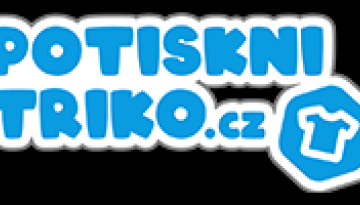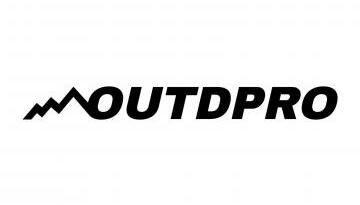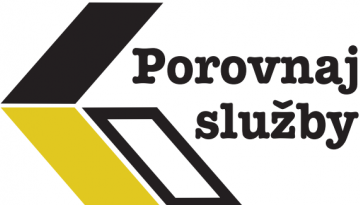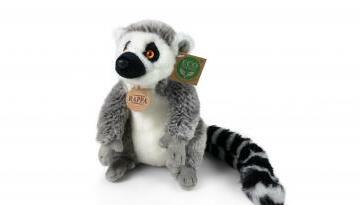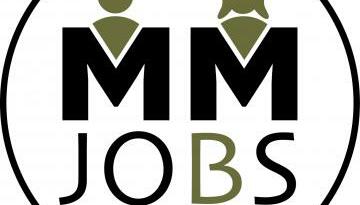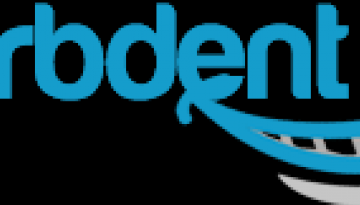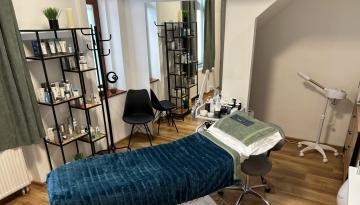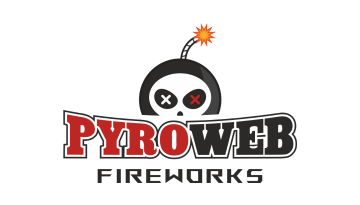Monitorujeme 1677 zdrojov

 Google Dooles 01.10.2021 12:31
Date: October 1, 2021
Go behind-the-scenes of today’s Doodle below!
La Raza! Méjicano! Español! Latino! Chicano!
Or whatever I call myself,
I look the same, I feel the same
I Cry and Sing the same.
I am the masses of my people and I refuse to be absorbed.
I am Joaquín. The odds are great
But my spirit is strong,
My faith unbreakable,
My blood is pure.
Today’s slideshow Doodle, illustrated by Brooklyn, NY-based guest artist , celebrates U.S. Chicano educator, boxer, poet, and activist Rodolfo “Corky” Gonzales. In addition to being a champion in the boxing ring, he was also a champion for racial and socioeconomic justice as one of the most influential leaders of the Chicano Civil Rights Movement. On this day in 1970, the Escuela Tlatelolco Centro de Estudios, founded by Corky and his family, opened its doors as the first private school in United States history with a focus on Chicano/Mexican-American cultural studies. The slides in today’s Doodle take a journey through Corky’s life while featuring lines from Gonzales' epic 1967 poem and the rallying cry of the Chicano cultural movement, “Yo Soy Joaquín” .
Rodolfo Gonzales was born on June 18, 1928, in an east-side barrio of Denver, Colorado. Throughout his youth, Corky worked in the sugar beet fields with his father, a first-generation Mexican immigrant who taught him to take pride in his heritage.
Despite his limited free time, Corky graduated high school at just 16. He saved for college but after one year couldn’t afford the high cost of tuition, so he embraced his athleticism to become an amateur boxer in 1944. At 19, Corky went pro as a featherweight. At the peak of his career, he was ranked as a top 3 featherweight boxer worldwide, but discriminatory organizers never gave him the chance to fight for the title. Retiring from boxing as a local star in 1955, he decided to use his platform and influence to advocate against racial and socioeconomic injustice across the nation.
In 1966, Corky founded the Crusade for Justice, a grassroots Chicano civil rights organization. He organized demonstrations in Denver and across the U.S., marching alongside civil rights leaders such as Cesar Chavez and Martin Luther King, Jr. In 1969, Corky furthered the cause by organizing the first National Chicano Youth Liberation Conference, where he inspired the younger generation to take pride in their heritage and be part of the cultural revolution.
Corky's creative writing reflected his activism and honored his Chicano pride throughout his career. His most notable poem “Yo Soy Joaquín'' tells the story of a man who travels through history to experience life as multiple Spanish leaders, Indigenous leaders from the Aztec homeland of Aztlán , a Mexican revolutionary, and finally a Chicano in the United States.
Due in large part to leaders like Corky, the Chicano Movement led to widespread positive changes for the Mexican and Latino/a communities in the U.S. that continue to this day. This includes the development of bilingual and multicultural socioeconomic programs, improving the working conditions of migrant workers, and increasing the representation of Mexican-Americans and Latinos/as in U.S. politics and education—all foundational elements to the fight for justice and equality that continues to this day.
Here’s to you, Corky! ¡Mil gracias, Corky!
Explore the life of Corky Gonzales, poet, boxer, and one of the most influential leaders in the Chicano Civil Rights Movement,
Guest Artist Q&A with Roxie Vizcarra
Today’s Doodle was illustrated by Brooklyn, NY-based guest artist . Below, she shares her thoughts behind the making of this Doodle:
Q. Why was this topic meaningful to you personally?
A. Corky Gonzales helped redefine what it means to be Chicano or Latino in America at a time when assimilation was viewed as the only way forward. As a Peruvian-American Latina, I'm grateful he worked so hard to bring pride in Latino culture and customs to his community in Denver and beyond. Putting a name to your identity can be so difficult sometimes, but it can also bring a sort of peace.
Q. What were your first thoughts when you were approached about working on this Doodle?
A. I was amazed I'd never heard of Corky Gonzales before!
Q. Did you draw inspiration from anything in particular for this Doodle?
A. I drew inspiration from the variety of colorful Chicano murals in Denver, Mexican textiles, and of course, Corky's inspiring life as told by his children whose admiration for their father knows no bounds.
Q. What message do you hope people take away from your Doodle?
A. I hope other Latinos feel as much pride in their heritage and identity as Corky would have wanted them to!
Early drafts of the Doodle below
Location:
,
Tags:
,
,
,
,
,
,
,
Google Dooles 01.10.2021 12:31
Date: October 1, 2021
Go behind-the-scenes of today’s Doodle below!
La Raza! Méjicano! Español! Latino! Chicano!
Or whatever I call myself,
I look the same, I feel the same
I Cry and Sing the same.
I am the masses of my people and I refuse to be absorbed.
I am Joaquín. The odds are great
But my spirit is strong,
My faith unbreakable,
My blood is pure.
Today’s slideshow Doodle, illustrated by Brooklyn, NY-based guest artist , celebrates U.S. Chicano educator, boxer, poet, and activist Rodolfo “Corky” Gonzales. In addition to being a champion in the boxing ring, he was also a champion for racial and socioeconomic justice as one of the most influential leaders of the Chicano Civil Rights Movement. On this day in 1970, the Escuela Tlatelolco Centro de Estudios, founded by Corky and his family, opened its doors as the first private school in United States history with a focus on Chicano/Mexican-American cultural studies. The slides in today’s Doodle take a journey through Corky’s life while featuring lines from Gonzales' epic 1967 poem and the rallying cry of the Chicano cultural movement, “Yo Soy Joaquín” .
Rodolfo Gonzales was born on June 18, 1928, in an east-side barrio of Denver, Colorado. Throughout his youth, Corky worked in the sugar beet fields with his father, a first-generation Mexican immigrant who taught him to take pride in his heritage.
Despite his limited free time, Corky graduated high school at just 16. He saved for college but after one year couldn’t afford the high cost of tuition, so he embraced his athleticism to become an amateur boxer in 1944. At 19, Corky went pro as a featherweight. At the peak of his career, he was ranked as a top 3 featherweight boxer worldwide, but discriminatory organizers never gave him the chance to fight for the title. Retiring from boxing as a local star in 1955, he decided to use his platform and influence to advocate against racial and socioeconomic injustice across the nation.
In 1966, Corky founded the Crusade for Justice, a grassroots Chicano civil rights organization. He organized demonstrations in Denver and across the U.S., marching alongside civil rights leaders such as Cesar Chavez and Martin Luther King, Jr. In 1969, Corky furthered the cause by organizing the first National Chicano Youth Liberation Conference, where he inspired the younger generation to take pride in their heritage and be part of the cultural revolution.
Corky's creative writing reflected his activism and honored his Chicano pride throughout his career. His most notable poem “Yo Soy Joaquín'' tells the story of a man who travels through history to experience life as multiple Spanish leaders, Indigenous leaders from the Aztec homeland of Aztlán , a Mexican revolutionary, and finally a Chicano in the United States.
Due in large part to leaders like Corky, the Chicano Movement led to widespread positive changes for the Mexican and Latino/a communities in the U.S. that continue to this day. This includes the development of bilingual and multicultural socioeconomic programs, improving the working conditions of migrant workers, and increasing the representation of Mexican-Americans and Latinos/as in U.S. politics and education—all foundational elements to the fight for justice and equality that continues to this day.
Here’s to you, Corky! ¡Mil gracias, Corky!
Explore the life of Corky Gonzales, poet, boxer, and one of the most influential leaders in the Chicano Civil Rights Movement,
Guest Artist Q&A with Roxie Vizcarra
Today’s Doodle was illustrated by Brooklyn, NY-based guest artist . Below, she shares her thoughts behind the making of this Doodle:
Q. Why was this topic meaningful to you personally?
A. Corky Gonzales helped redefine what it means to be Chicano or Latino in America at a time when assimilation was viewed as the only way forward. As a Peruvian-American Latina, I'm grateful he worked so hard to bring pride in Latino culture and customs to his community in Denver and beyond. Putting a name to your identity can be so difficult sometimes, but it can also bring a sort of peace.
Q. What were your first thoughts when you were approached about working on this Doodle?
A. I was amazed I'd never heard of Corky Gonzales before!
Q. Did you draw inspiration from anything in particular for this Doodle?
A. I drew inspiration from the variety of colorful Chicano murals in Denver, Mexican textiles, and of course, Corky's inspiring life as told by his children whose admiration for their father knows no bounds.
Q. What message do you hope people take away from your Doodle?
A. I hope other Latinos feel as much pride in their heritage and identity as Corky would have wanted them to!
Early drafts of the Doodle below
Location:
,
Tags:
,
,
,
,
,
,
,
NEWS.SK odporúča
Top firmy
Nie sú nájdené žiadne články.
Nie sú nájdené žiadne články.











